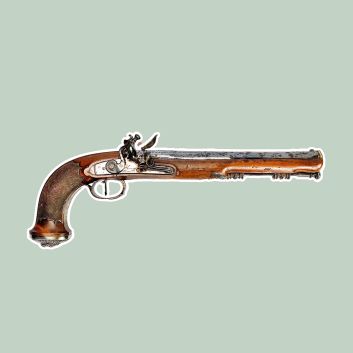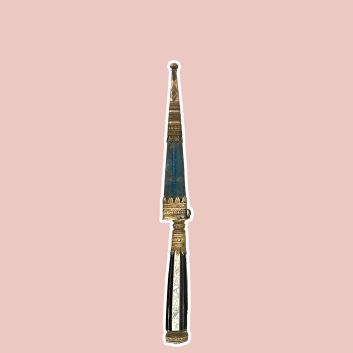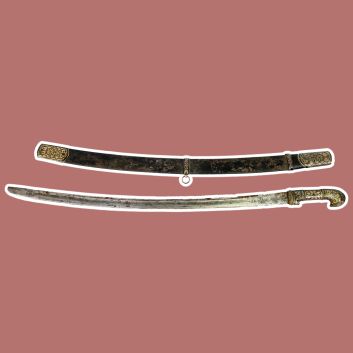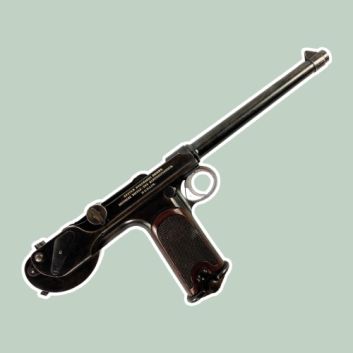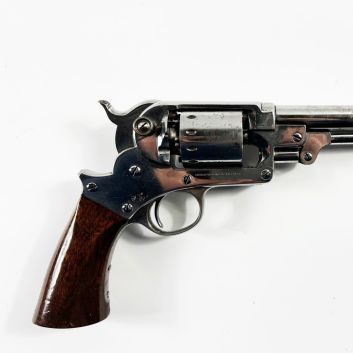Rating and value of 1892 Saint Étienne revolvers (French Army regulation sidearm)
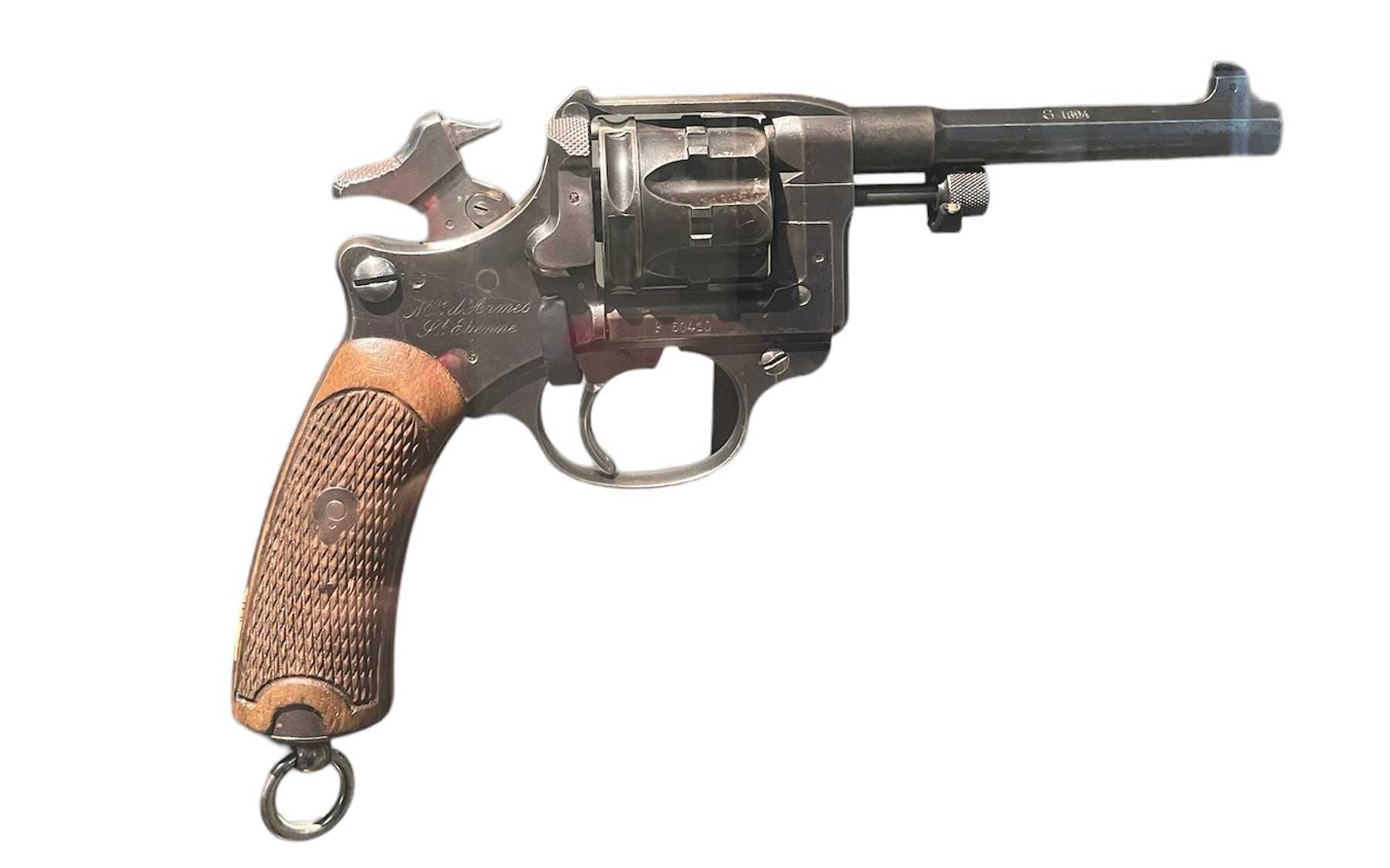
If you own a Saint Étienne revolver and would like to know its value, and if you don't know, the period and model of your weapon, our state-approved experts and auctioneers will be happy to offer you their expert appraisal services.
Our specialists will carry out a free appraisal of your weapon, and provide you with a precise estimate of its value on today's market.
Then, if you want to sell your property, we'll point you in the right direction to get the best possible price.
Rating and value of Saint Étienne revolvers
Saint Étienne revolvers are highly sought-after by collectors. However, price differences can be considerable, depending on the model and state of preservation.
Prices for these objects can now rise considerably under the auctioneer's hammer. Buyers from all over the world are interested in sales of certain rare pieces.
The price at which they sell on the art market currently ranges from €150 to €1,800, a considerable difference, but one that says a lot about the value that can be attributed to these weapons.
In 2021, a Delvigne system, centerfire, 11-gauge regulation revolver was sold for €1,200, whereas its estimate was between €500 and €600.
Value order ranging from simple to prestigious
Revolver type | Results |
|---|---|
Revolver model 1873 | From €240 to €800 |
Delvigne system revolver | From €500 to €1,200 |
Lefaucheux-type revolver | From €150 to €1,800 |
Response in less than 24h
A look back at the history of Saint Étienne revolvers
The 1892 model revolver, produced by the Saint Étienne factory, will go down in history as the standard sidearm of the French army for several decades.
Commonly nicknamed the "Saint Étienne revolver", its 8x27-mm caliber is relatively modest, but sufficient for military use at the time. Capable of firing both single and double action, it offered a degree of flexibility appreciated by the troops, particularly the cavalry, who adjusted the barrel to suit their needs.
Its barrel is rifled with four grooves, improving accuracy by giving the bullet a stabilizing rotation, an important feature at the time.
The use of the new smokeless powder at the beginning of the 20th century marked a significant modernization of the weapon, although traditional black powder remained common.
Despite these advances, the 1892 revolver soon came in for criticism. Its caliber, judged too small, limited its effectiveness in combat. The military noted that it lacked shooting power and that its handling was not very practical.
As a result, this revolver gradually fell into disuse, giving way to models better suited to the new demands of the battlefield.
Like Savage revolvers of the same era, Saint Étienne revolvers are now collector's items. Their rarity and link to military history make them prized collector's items.
For some models, a category B license is required to acquire them at auction, a detail not to be overlooked by enthusiasts.
After the 1892 model, the French army successively adopted the MAS 1935 pistol, then the MAC 1950, more modern handguns that responded to changes in military tactics.
Today, Saint Étienne revolvers are hardly used any more, but they retain a special aura for enthusiasts of historic weapons.
A testament to a bygone era, these revolvers embody a transition from conventional weaponry to the modernization of the French army, marking the beginning of a period when mechanical reliability and standardization became paramount for the armed forces.
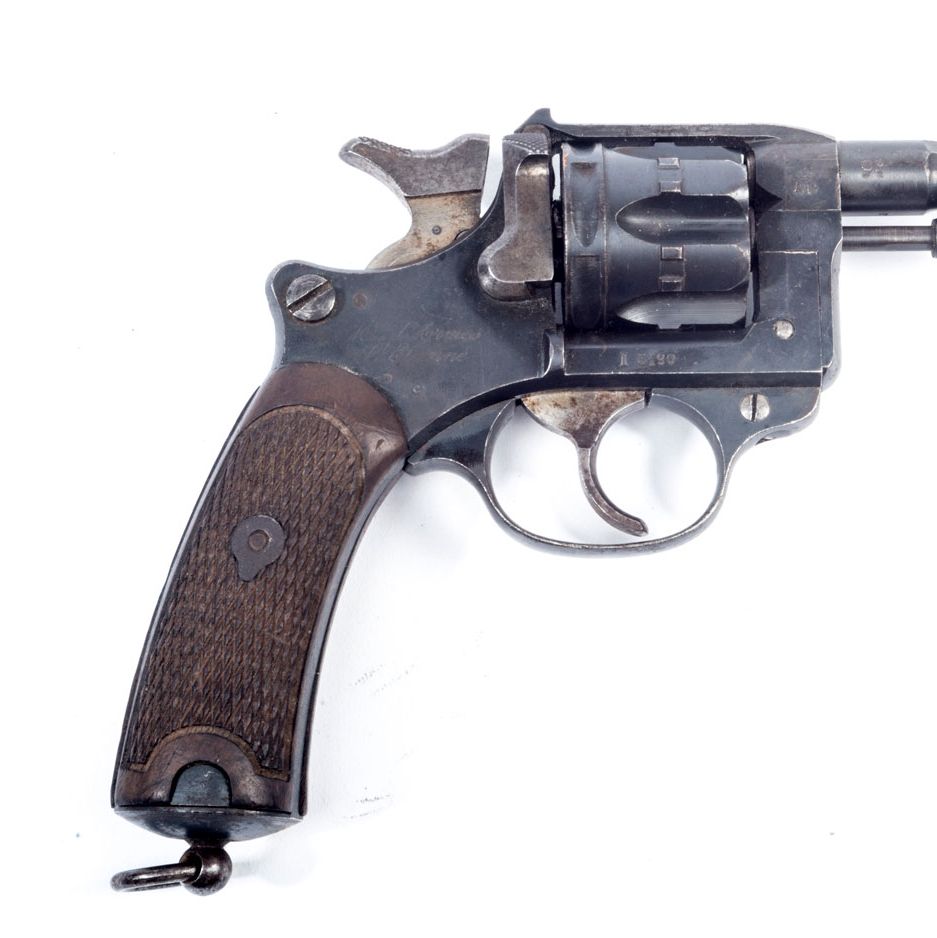
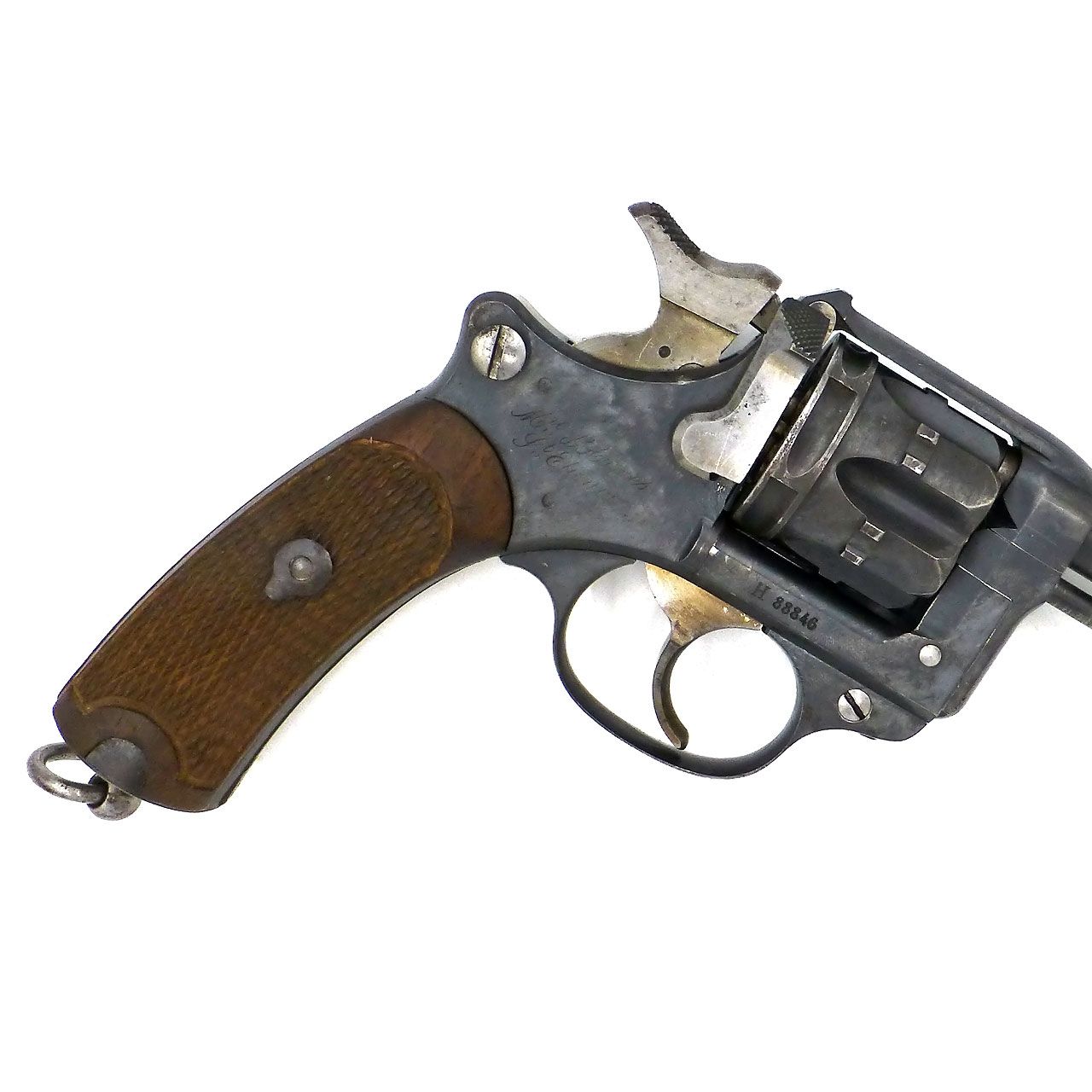
Point Histoire: The 1892 revolver during Verdun
In 1916, during the Battle of Verdun, the 1892 revolver played an unexpected role in a decisive confrontation.
A group of French soldiers, under the command of Captain André Lemoine, are trapped in an advanced trench, running out of ammunition for their Lebel rifles.
In the confusion, Lemoine grabbed his 1892 revolver, identifiable by its 8mm caliber and rifled barrel. Armed with this modest but reliable weapon, he led a desperate charge to repel the dangerously approaching German troops.
With a rapid rate of fire thanks to its double-action mechanism, Lemoine manages to hit several opponents at close range. The precision of the shot, aided by the four-groove rifled barrel, compensates for the weapon's low power.
Encouraged by his audacity, his men followed him and, armed with their own 1892 revolvers, managed to repel the enemy assault.
This daring action ensured that the French position, a key strategic point in the battle, was maintained. The anecdote became famous among the poilus, turning the 1892 revolver into a symbol of courage and ingenuity in the face of adversity.
Although often criticized for its low caliber, this episode shows that, wielded with determination, it could prove formidable in the most critical situations.
Scientific composition of Saint Étienne 1892 revolvers
The 1892 revolver, designed for the French army, stands out for its innovative technical design for its time.
Equipped with an 8 mm caliber, it features a double-action mechanism, allowing rapid firing without having to manually cock the hammer with each shot. This innovation simplifies use in close combat situations, where speed is crucial.
Its cylinder holds six cartridges, and tilts to the right for faster reloading, a notable feature for a revolver of this period.
The precision of the 1892 revolver is largely due to its rifled barrel, composed of four helical grooves.
This device stabilizes the rotating bullet during firing, improving accuracy at short and medium ranges, despite the low relative power of the 8 mm caliber.
In fact, the design of the barrel allows better trajectory of the projectile, partially compensating for the lack of power with high accuracy of the shots.
The weapon's robust structure, made from high-quality steel, makes it durable and resistant to the harsh conditions encountered in the field. The 1892 revolver also features a mechanical safety to prevent accidental firing.
Ergonomics are simple and functional: a grooved wooden handle ensures a good grip, even in wet or muddy conditions.
The 8 mm cartridge used in the revolver is specific to this model, designed for homogeneous powder combustion, ensuring constant bullet exit velocity. Although this caliber is less powerful than other contemporary ammunition, it was chosen for its low recoil force, enabling better control of the weapon.
What's more, the double-action trigger system promotes a faster rate of fire, an essential feature in close combat.
In short, the 1892 revolver combines simplicity, reliability and precision in a design that prioritizes rapid action.
These features make it an iconic handgun, still prized by collectors for its careful engineering and military history.
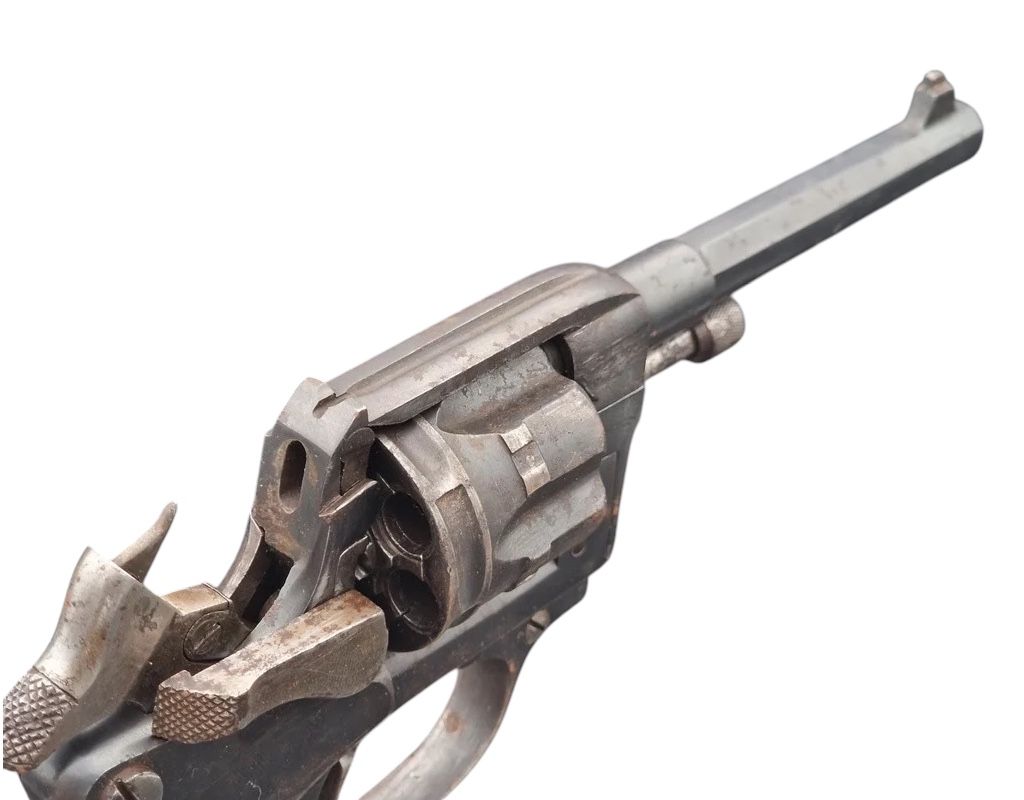
The advantages of buying and selling Saint Étienne revolvers at auction
Saint Étienne revolvers arouse real interest among both buyers and sellers at auction. They are as popular as Savage Navy revolversrevolvers Colt revolversand Smith & Wesson revolvers .
For sellers, these specialized sales offer a unique opportunity to address a passionate audience, often made up of collectors ready to invest in well-preserved historic models.
Auctions bring special visibility to these weapons, which are not only pieces of military engineering, but also witnesses to significant events such as the Battle of Verdun.
These are objects that tell a story, and this historical dimension contributes greatly to their value on the market.
For buyers, the auction represents a rare opportunity to acquire an authentic, sturdy weapon loaded with military significance.
These revolvers, often accompanied by certificates of authenticity and information about their past, become collector's items that testify to the ingenuity and resilience of the French armies.
In particular, the 1892 model, thanks to its role at critical moments in history, enjoys an almost legendary aura.
The opportunity to own a piece of military history, marked by famous anecdotes and battlefield usage, makes it a valuable and sought-after acquisition for antique arms enthusiasts.
To buy a Saint Étienne revolver is to plunge into the past and preserve a fragment of an era when these weapons were synonymous with courage and ingenuity in the face of adversity.
Know the value of a Saint Étienne revolver
If you happen to own a Saint Étienne revolver, from any period, and would like to know its value, don't hesitate to request a free appraisal using the form on our website.
A member of our team of experts and certified auctioneers will contact you promptly to provide you with an estimate of the market value of your piece, as well as any relevant information about it.
If you want to sell your property, our specialists will also help you find alternatives to sell it at the best possible price, taking into account market trends.
Response in less than 24h
Related topics

Rating and value of Swiss daggers and daggers
Swiss daggers are bladed weapons created in medieval times for a variety of purposes. They are highly prized and valuable.
Read more >

Rating and value of cinquedea swords and daggers
cinquedea swords are rare collectors' items, highly prized at auction. Their value continues to rise.
Read more >
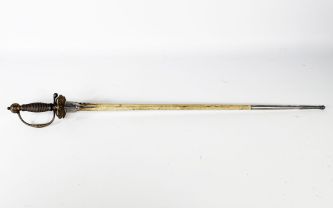
Rating and value of court swords
Court swords are historical souvenirs and collector's items that are highly prized at auction. Their value is stable. Estimate in 24h.
Read more >
Secure site, anonymity preserved
State-approved auctioneer and expert
Free, certified estimates
